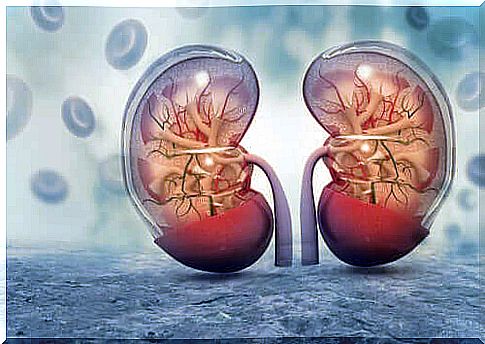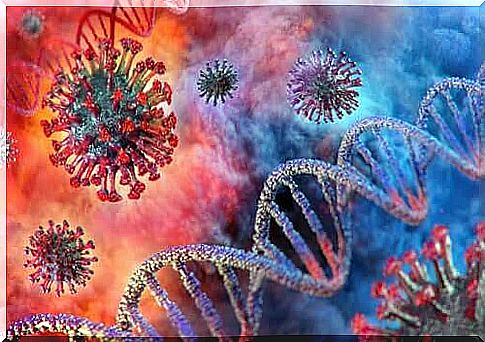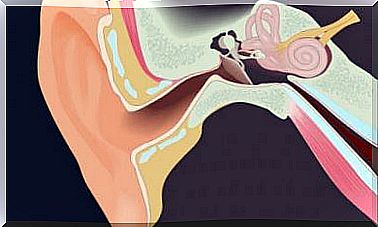How Does COVID-19 Affect The Kidneys?
COVID-19 is a disease that primarily affects the lungs. Now we know that it also affects the kidneys. Initial studies carried out in China confirm this and, since then, the rest of the world has studied this hypothesis.

Knowing how COVID-19 affects the kidneys is one of the new questions on the scientific community’s list of questions about the development of the disease. New symptoms appear every day, as well as new complications derived from the disease.
Doubt about the kidneys arose when patients hospitalized with COVID-19 also presented the clinical picture of acute kidney failure. In China, doctors then wondered how COVID-19 affected the kidneys. In this context, hypotheses were put forward, which were gradually verified or discarded through research.
At present, the mechanism is not yet clear, but nephrologists agree that the SARS-CoV-2 virus is responsible for some kidney damage which may vary. While some geographies have recorded less than 1% of cases of patients with acute kidney failure, in other countries the percentage rises to 30%.
The prognosis for patients with COVID-19 affecting the kidneys is more severe. Acute renal failure is difficult to treat in intensive therapy units.
Scientific studies on how COVID-19 affects the kidneys
At the start of the coronavirus pandemic in China, several scientific publications had already alerted to the kidney damage caused by the SARS-CoV-2 virus. Some of these studies were based on just a few patients, but others included nearly 1,000 patients.
One of the first publications sought to assess the incidence of acute kidney failure in patients affected by the coronavirus. Renal failure is the inability of the kidney to carry out its filtering mission.
In this study, almost 9% of patients suffered from kidney failure. This results in the presence of protein in the urine, which indicates loss of protein via the urine. The level of creatinine in the blood also increases, a substance which can become toxic in excess of a certain amount.
Patients who exhibited these symptoms were subjected to kidney tomography. The images revealed that all of the patients had kidney damage, including inflammation and fluid build-up.
China has carried out another pioneering scientific study on how COVID-19 affects the kidneys. In this study, the researchers found that 3% of hospital patients suffered from kidney failure, and 40% of them suffered from hematuria (blood in the urine).

The three factors of kidney damage caused by coronavirus
We can say that there are three aspects to consider when it comes to kidney damage caused by COVID-19. These factors can act alone or together. Their presence varies depending on the patient. Sometimes the observed kidney damage is a direct consequence of the presence of SARS-CoV-2. In other cases, kidney damage is an indirect consequence of the presence of the virus: it is linked to treatment to treat COVID-19.
- The virus itself: Nephrologists agree that the kidneys, like the lungs, are directly attacked by COVID-19. The respiratory and renal systems share certain substances including renin and angiotensin. These substances bind to a receptor which may be the protein that SARS-CoV-2 uses to enter cells
- Systemic symptoms: When COVID-19 is severe, there are many organs affected by the same body failure. The effect is similar to that produced by pneumonia caused for other reasons and which can lead to kidney failure following a cascade of effects
- Treatment: Although there is no truly effective treatment protocol for treating COVID-19, specialists are studying some alternatives with different drugs. Some of these drugs can have side effects on the kidneys and therefore can cause kidney failure.

How does COVID-19 affect the kidneys?
The theory of how SARS-CoV-2 affects kidney cells is based on what we know about how this virus infects lung cells. We know that its key to entering cells is the ACE2 protein.
The virus manages to enter lung cells thanks to these spicules on its surface which partly coincide with a receptor that humans already have: ACE2. This receptor, which is also a protein, is found in the lungs and is involved in the regulation of blood pressure.
The regulatory system we are referring to is that of renin-angiotensin. This is one of the strengths of drug treatment for arterial hypertension. For this reason, specialists also suspect that the risk of death is higher in hypertensive people at this time of the pandemic.
The kidneys are found to have similar proteins due to their participation in the renin-angiotensin system. It could be that COVID-19 could follow a similar path in kidney cells as it follows in lung cells.
Kidney patients are one of the risk groups for COVID-19
One thing is clear: Patients who suffer from a disease affecting the kidneys are among the groups at risk during this pandemic. Consequently, they must take all the necessary precautions and respect social isolation.
It is essential that these people continue their treatment. In case of consultation necessary because of the presence of symptoms, the doctor must be able to have the entire history of the patient in order to be able to offer the best option according to the case.









